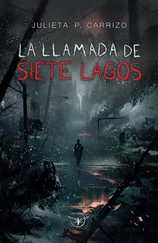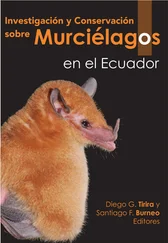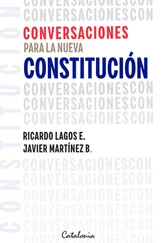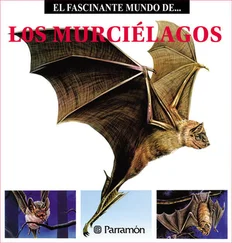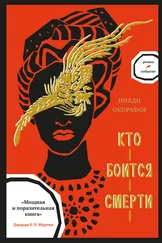Ннеди Окорафор - Lagos Noir
Здесь есть возможность читать онлайн «Ннеди Окорафор - Lagos Noir» весь текст электронной книги совершенно бесплатно (целиком полную версию без сокращений). В некоторых случаях можно слушать аудио, скачать через торрент в формате fb2 и присутствует краткое содержание. Город: New York, Год выпуска: 2018, ISBN: 2018, Издательство: Akashic Books, Жанр: Детектив, на английском языке. Описание произведения, (предисловие) а так же отзывы посетителей доступны на портале библиотеки ЛибКат.
- Название:Lagos Noir
- Автор:
- Издательство:Akashic Books
- Жанр:
- Год:2018
- Город:New York
- ISBN:978-1-61775-523-1
- Рейтинг книги:4 / 5. Голосов: 1
-
Избранное:Добавить в избранное
- Отзывы:
-
Ваша оценка:
- 80
- 1
- 2
- 3
- 4
- 5
Lagos Noir: краткое содержание, описание и аннотация
Предлагаем к чтению аннотацию, описание, краткое содержание или предисловие (зависит от того, что написал сам автор книги «Lagos Noir»). Если вы не нашли необходимую информацию о книге — напишите в комментариях, мы постараемся отыскать её.
Lagos Noir — читать онлайн бесплатно полную книгу (весь текст) целиком
Ниже представлен текст книги, разбитый по страницам. Система сохранения места последней прочитанной страницы, позволяет с удобством читать онлайн бесплатно книгу «Lagos Noir», без необходимости каждый раз заново искать на чём Вы остановились. Поставьте закладку, и сможете в любой момент перейти на страницу, на которой закончили чтение.
Интервал:
Закладка:
That meant Sundays for Okoro were usually a slow day of report-writing at the station. But this morning a call had come in, from Ikoyi, which in itself was a surprise given that the wealthy suburb had very few crimes, much less murders. Okoro was the only detective on duty, which automatically made this case a single-officer investigation, and for him meant that he could channel as much Sherlock Holmes as possible. To say he was excited was to understate matters. Maybe closing this case using his preferred methods was just what he needed to earn him the credibility he so desperately needed.
It was bad enough that his manner of dress — clean shirts, pressed suits, polished wingtips, and the occasional fedora — in a unit where his colleagues looked like they had just rolled out of a brothel and straight into work, earned him the taunts of dandy . A euphuism he knew really meant homosexual. He rationalized it away by putting the bullying down to the manner of the men in these kinds of jobs. He rarely challenged them for fear of confirming their suspicions about him. It would be dangerous for him on many levels if anyone knew he liked men. There was the anti-sodomy law which had been used in the mother country to imprison one of his heroes, Oscar Wilde. It was still on the law books here in the colony and would be enforced with no difficulty. Then there was his career, which he couldn’t afford to have derailed. Men like him knew how to keep quiet, how to spot in silence the codes that revealed like-minded men, sympathetic men. Theirs was a lifestyle conducted in subterfuge, the secrets and ways of it closely guarded.
Detective James Okoro loved motorcycles. If he could afford one he would have liked an original 1950 Indian Chief, but he could only afford a 1949 Vespa 125 Corsa, with an aluminum alloy frame. It looked quite nice and its high-pitched engine whine sounded to him like a siren and he loved that he could turn heads. As he rode across the mainland bridge toward Ikoyi, he felt his excitement growing
It was a quiet Lagos Sunday and the rich residential area of lkoyi was lush with green palms, manicured lawns, and shocks of red hibiscus, purple bougainvillea, and yellow sunflowers. It was 1958 and the eve of independence. The air of freedom, of hope, was palpable. Already this once all-white neighborhood was a salt-and-pepper mix. The elite Nigerians, prepping for their takeover of power, had already moved in. Actually, it probably wasn’t accurate to say that it was once an all-white locale because even in the late nineteenth century there were rich locals living here, and Detective Sergeant Okoro was particular about accuracy. That was what made Sherlock Holmes such a success. Attention to detail.
Unlike most of the other houses on the street, this one had no gate or fence. Just thick ivy shrubs for privacy and a gravel-filled driveway with a black Morris Minor parked at the end of it. Okoro took in the well-kept grounds and noted that there was probably a gardener on staff, should that be relevant. He came to heavy double front doors, the wood carved elaborately with local motifs and scenes. It was beautiful and made Okoro wish he could own a place with doors like that. He pulled the rope hanging from the door, weighted by the brass figure of an Oba of Benin. Deep inside the house he heard the chime of an old bell.
A man appeared at the door. He was in his late thirties. Handsome and very dark, he wore a beige khaki uniform — a starched safari jacket and shorts — and his feet were laced into very shiny oxblood oxford shoes. “Are you the policeman?” he asked.
Okoro surmised he must be the houseboy. He never understood that term. It could only be meant to demean, as most houseboys were usually above thirty and more like butlers in the range of the work they did and in their ability to run households. They were often very well spoken and educated. Some of them had a few other houseboys and maids working under them. They were like fathers to these young men and women, and many used their position and privilege to educate their wards who might otherwise never have that opportunity. Okoro respected them.
“Yes, and you must be Mr....?”
“Good morning, sir. I’m not mister, just Emmanuel. My name is Emmanuel.”
“Well, good morning, Emmanuel. Am I at the right place? I hear there has been a murder?”
Emmanuel looked Okoro over. Both men seemed to recognize something about the other, but when Okoro leaned in to take a better look, Emmanuel glanced away, behind Okoro, as though searching for more policemen.
“Are you alone, sir?” the houseboy asked.
The moment had been fleeting, and Okoro couldn’t be sure, so he let it go.
“Yes, I am. No need for a lot of officers to investigate a death.”
Okoro noticed something in Emmanuel’s eyes at the word death . A reddening of the eyes, a wetness, and then a quick shift of the gaze away. He knew from the call that had come in that morning that the person who had died was Emmanuel’s boss. Okoro was surprised that an employer’s death would elicit this kind of response from the houseboy.
“Is everything all right?” Okoro asked.
“Of course, sir. This way, please,” Emmanuel replied.
He led Okoro down a wide hallway with hard ceramic floor tiles that rang out underfoot. There were big-framed black-and-white photos on the walls. In every photograph, there was an ape alone, or an ape being held by a woman. There was only one image of a couple on their wedding day.
“No children?” Okoro asked Emmanuel.
“No sir, just the monkey.”
“And do you have any idea who might have killed your master?”
“Madam says the monkey killed Gordon,” Emmanuel responded.
“Gordon? You called your master by his first name?”
“Mr. Parker, I m-meant to say,” Emmanuel stammered.
“But you said Gordon. That means something.”
“It’s just a mistake, sir. We are mourning the loss here.”
Okoro smiled at Emmanuel’s discomfort. He knew there was more. It was not uncommon for white bosses to take up affairs with staff — usually female though. Maybe it was nothing. There was enough going on here and he couldn’t afford to be distracted. Sherlock Holmes wouldn’t approve. It was the easiest way to miss the small details that can break a case wide open.
“It is a chimpanzee, I can see that from the photos,” Okoro said. “So, it’s an ape, not a monkey.”
Emmanuel nodded and began to walk again. “Yes sir,” he said. “The monkey is an ape. This way, please.”
Emmanuel led Okoro into a large living room at the end of the hall. It was airy and full of light from the French doors at the far end that led into the garden. Emmanuel stopped at the entrance to the living room, refusing to go inside. He glanced briefly at the body on the floor and looked away. A woman stood by the French doors holding a chimpanzee in a diaper in her arms.
“Madam, this is the police,” Emmanuel announced, and turned to leave.
Okoro stepped forward. “Good morning, Mrs. Parker. I am Detective Sergeant Okoro.”
Okoro moved around the crime scene, viewing it from different angles, searching for a clue. For anything that might reveal what had happened there. There was something in the way that the body was lying, spread-eagle. Clearly the body had fallen forward and it was also clear that the blow had been delivered from behind and that it had caught the victim unawares. But the knees were all wrong, as if the victim had been kneeling when struck. But that made no sense — why would a man be kneeling in his living room? Perhaps he had been made to kneel, which suggested a premeditated murder, an execution even. That would rule out the chimpanzee. It wasn’t that Okoro had any difficulty believing a chimpanzee would kill a man. They were in fact killers, and carnivorous too. They ate their young sometimes and definitely ate other monkeys. But they only attacked if they felt threatened. What would make a pet feel threatened?
Читать дальшеИнтервал:
Закладка:
Похожие книги на «Lagos Noir»
Представляем Вашему вниманию похожие книги на «Lagos Noir» списком для выбора. Мы отобрали схожую по названию и смыслу литературу в надежде предоставить читателям больше вариантов отыскать новые, интересные, ещё непрочитанные произведения.
Обсуждение, отзывы о книге «Lagos Noir» и просто собственные мнения читателей. Оставьте ваши комментарии, напишите, что Вы думаете о произведении, его смысле или главных героях. Укажите что конкретно понравилось, а что нет, и почему Вы так считаете.
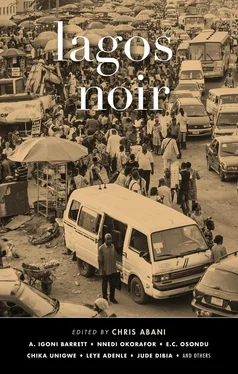
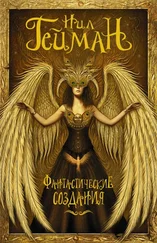

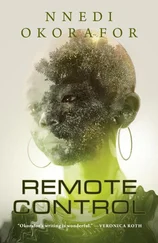
![Ннеди Окорафор - Бинти [litres]](/books/399229/nnedi-okorafor-binti-litres-thumb.webp)
![Ннеди Окорафор - Кто боится смерти [litres]](/books/401080/nnedi-okorafor-kto-boitsya-smerti-litres-thumb.webp)
